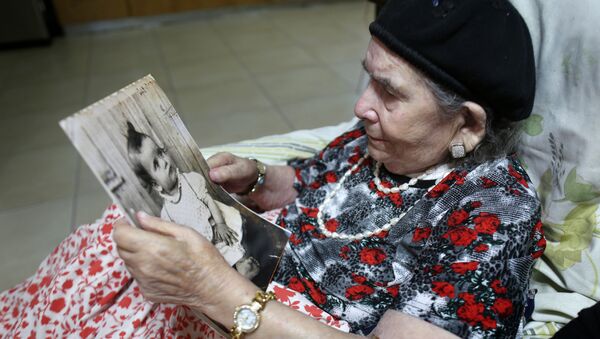The 'Affair' involved the disappearance of hundreds of babies and toddlers born to Yemenite immigrants to Israel, from 1948 until 1954. Yemenite parents were told by doctors their children had died, while in reality the children were kidnapped and given or sold to Ashkenazi families. In all, over 1,000 families have expressed suspicions their children were taken in this manner.
Three government probes were conducted into the affair; each one concluded the children had all in fact died.
Despite this, rumors and questions have continued to circle the case, as affected families were not given their children's bodies or informed of their burial places, provided with death certificates were riddled with errors, and some of the missing children were sent army draft notices 18 years after their alleged deaths. There have also been instances where adopted children have tracked down their Yemenite parents and conclusively determined their relationship via DNA tests. The new raft of declassified documents are papers arising from the trio of investigations.
"Today we right a historic wrong… for close to 60 years, people did not know the fate of their children, in a few minutes any person can access the pages containing all the information that the government of Israel has," Netanyahu is reported to have said at the documents' unveiling.
However, some figures in Israel, including many relatives of disappeared children have expressed doubts about the database.
Nurit Koren, a member of Netanyahu's governing Likud party, who chaired one of the taskforces on the Affair, told Israel's Army Radio that the documents represented only half of the total generated by each inquiry and stop short of covering the entire controversy; while the publicly-available trail ends in 1954, reports of suspicious disappearances continued way into the 1960s.
The lost Yemenite children of Israel https://t.co/YcDD2LQg6M pic.twitter.com/7cHKy4Je3I
— N3t Business (@NET____Business) October 14, 2016
Yaakov Ben Aba, a Yemenite Jew who emigrated to Israel in 1944, called the database a "mockery." He lost five siblings between 1944 and 1953, and believes they were kidnapped:
"Opening the protocols to the public is mockery. It's in order to keep covering up the affair. Instead of opening the adoption files, they are throwing a bone at us in the form of protocols that will not really get us closer to the truth."
Shosh Levy, whose brother Tzion Salem disappeared, said many of the details included in the files relating to her case are inaccurate:
"We saw the death and burial certificate, and it says my brother was born on February 29, 1956, was hospitalized on July 22, 1956 and died the next day. That didn't match the Interior Ministry records. There were inaccuracies in regards to his age too.
"Some documents noted he was hospitalized when he was 18 months old, and others say he was hospitalized at 10 months. My mother insists he was hospitalized because of a hernia, while the commission's report says that the reason of hospitalization was malnutrition and diarrhoea. Moreover, the most important thing is that there is a contradiction between the testimony my mother gave to the commission and the actual testimony written in the protocol. Someone made sure to ‘beautify' the reality and rewrite the evidence."



